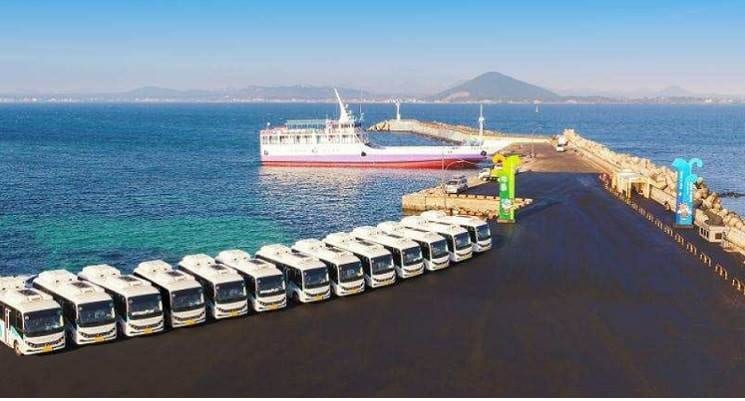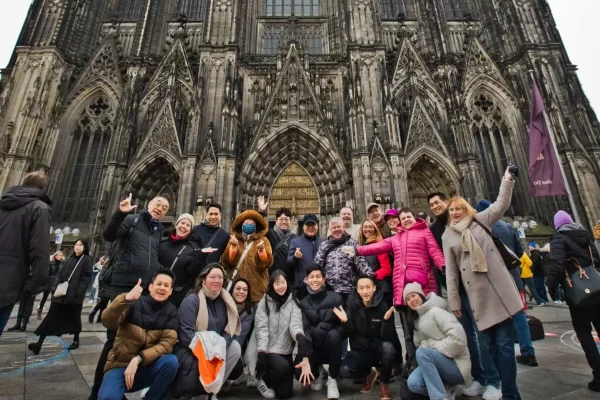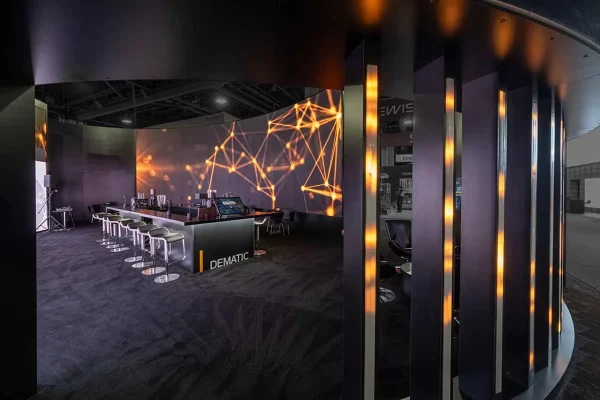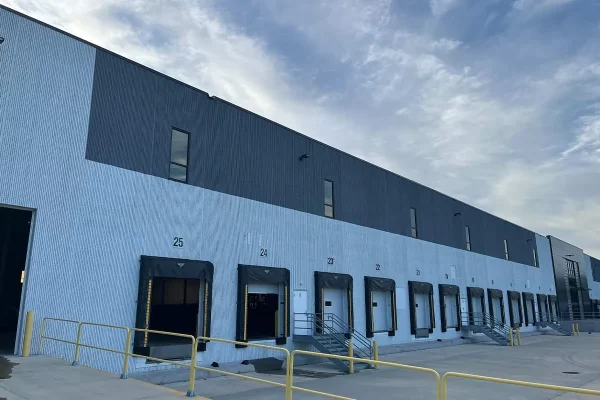The Jeju Convention & Visitors Bureau on Jeju, a South Korean island and popular resort spot, announced new green initiatives that they hope will allow more visitors to enjoy the island while leaving a smaller carbon footprint. Last year, Seogwipo, the second largest city on Jeju, introduced a number of full-size electric buses to routes on the south side of the island. These buses have batteries that can be easily swapped so the operators don’t have to wait for the batteries to be charged, which allows the buses to be on the road a greater percentage of the day. Jeju International Airport also swapped some of its passenger transport buses for electric buses earlier this year. According to a report by aviation data monitor OAG, the air route between Seoul and Jeju City is is the world’s busiest with 64,991 departures in 2017.
The most recent initiative was the addition of a fleet of 20 electric buses to Udo Island. The buses were first introduced earlier in the year but the official launch was held on April 10. Udo is a small island known for agriculture and tourism. Because of its beautiful scenery it has been used as a set for several films. According to the manufacturer of the buses, BYD, this is the largest project of its kind in northeast Asia. Each bus will be able to fit 15 people and its small size should make them perfect for the island’s narrow roads. The bus, called eBus-7, is able to travel 200 kilometers on a single charge and only requires two-hours to be fully charged, more than sufficient for the island with a circumference of 17 km.
An Udo Island official says that the buses are part of a plan to make Udo a green island so they can pass the nature on to future generations.
For more info, visit jejumice.or.kr.
































